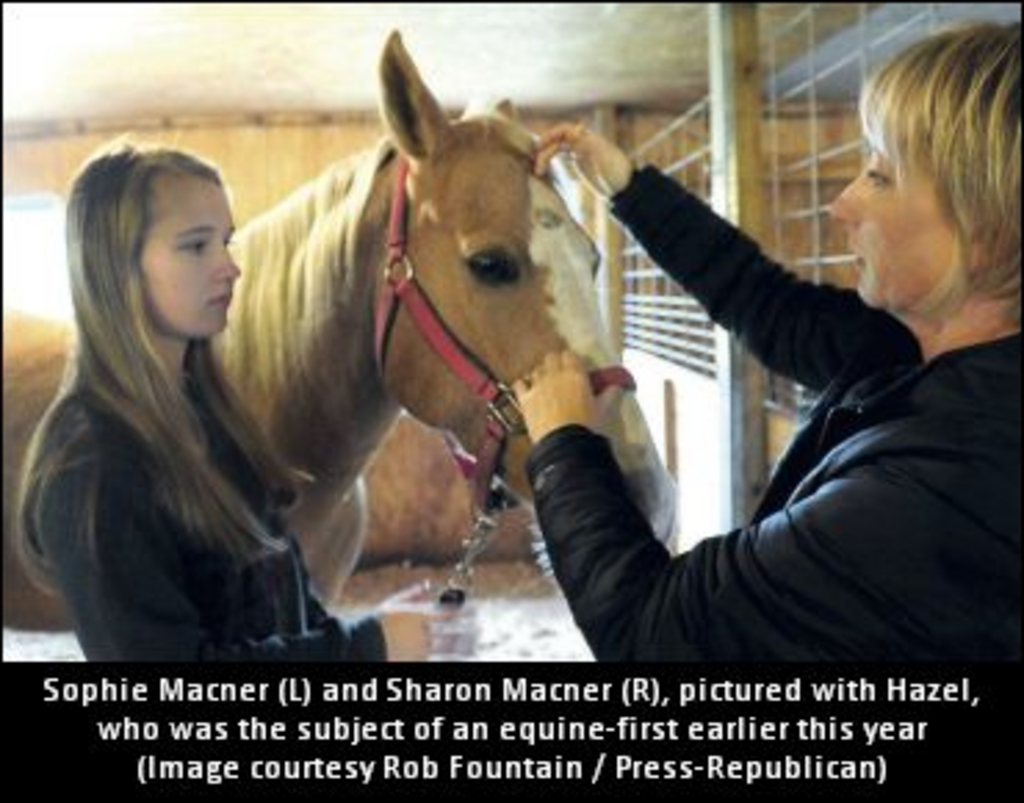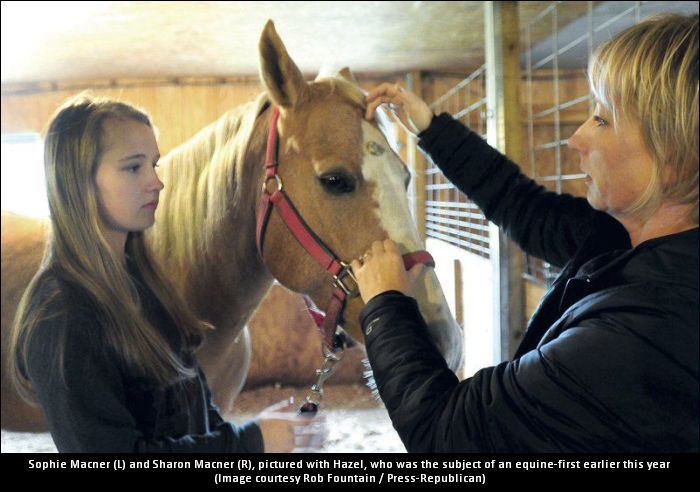Erratic Behaviour Leads To Breakthrough

Many horses display behaviour that baffles their connections, onlookers and veterinarians alike. Some people slough it off as a horse just having strange tendencies. In a particular case, Sophie Macner knew there was something wrong with her horse. Macner’s compassion has led to a first in the equine world.
An article by the Press-Republican tells the story of Hazel, a 13-year-old American Paint pony who has become the first equine in the world to get an electrical stimulation unit implanted in its head to combat the symptoms of trigeminal nerve neuralgia, which is relatively unheard of in horses.
The condition, which is more commonly refereed to as ‘TN,’ has been studied extensively in humans, but not as much in horses. The ailment is characterized by intense facial pain. Macner did not have any idea that Hazel had TN – and how could she – but she knew that something was amiss.
The teen from Plattsburgh, New York knew Hazel well. The pair held the strong bond that horse and rider do. They had placed well during 4-H shows in both 2014 and in 2015, although, by August of 2015, Macner wasn’t riding Hazel at all.

According to Macner, Hazel had started shaking and repeatedly flicking her head during their rides. The problems persisted and then got worse, as the horse would rub her head on anything she could. The issues ultimately led to Macner stepping away from Hazel in terms of riding, but that was when Sophie and her mother, Sharon, went looking for answers, which resulted in the TN diagnosis.
Hazel wound up being referred to Dr. Toby Pinn at the Vermont Large Animal Clinic and Equine Hospital. After some testing and trying some different things, Hazel’s trigeminal nerve was given a block and the symptoms went away.
After isolating the issue, Sophie and Sharon got their horse in touch with Dr. Norm Ducharme, James Law Professor of Large Animal Surgery, Cornell College of Veterinary Medicine in Ithaca. According to the article, in May of 2016, Dr. Ducharme performed an experimental surgery on Hazel where electrodes were implanted directly in contact with her trigeminal nerves. The processor, with electrodes, was implanted under her skin on her face. The procedure was the first-ever for an equine.
Although the surgery has been deemed a success in the short term, Dr. Ducharme has cautioned that it will take a few years, many more horses, and an analysis of the side effects before the course of action can be characterized as successful.
(With files from the Press-Republican)

